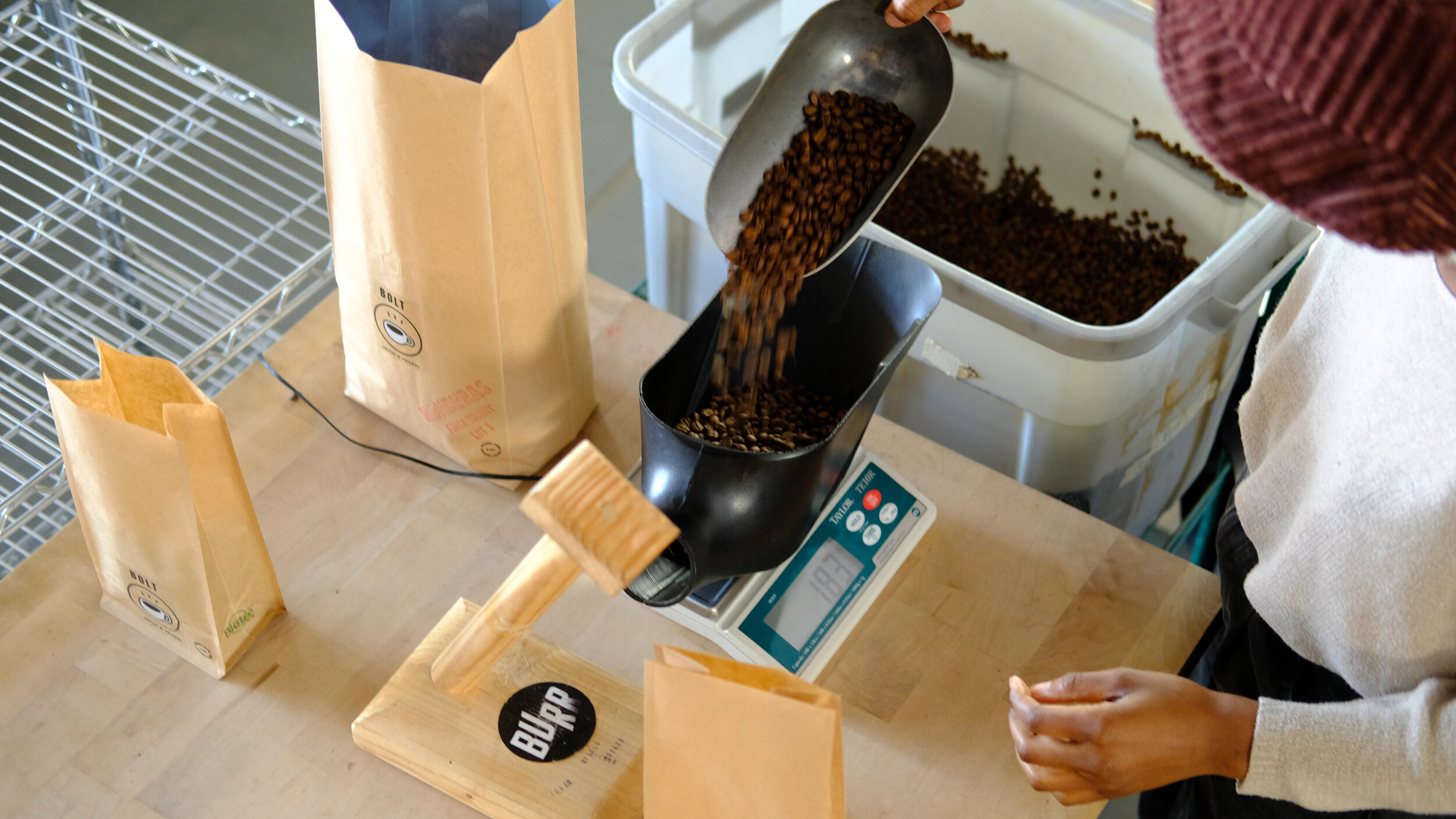
Frequently Asked Questions

General Coffee Questions
What is a single origin coffee and how is it different than a blend?
A single origin coffee comes from a single farm or municipality, whereas a blend is a mix of multiple roasted single origins. Some folks blend the coffees prior to roasting; we roast each origins separately to ensure its roasted to its proper and best specifications, then we blend!
What kind of coffee has the most caffeine?
FUN FACT! Though they're essentially the same, light roasts contain a slightly higher caffeine content than dark roasts!
What is the difference between a washed and a natural processed coffee?
Washed and Natural are broad terms referring to the processing method of a given coffee. Before reaching us, coffee beans need multiple layers removed. There are different ways to extract the beans, which affects the coffee’s profile. Washed coffees will tend to highlight more complexities and acidity, whereas the Natural process will highlight fruit notes and make a fuller bodied cup.
What is roast level?
Roast level refers to how long the coffee is roasted—the shorter the roast, the lighter the bean. We roast most of our coffees to a medium-light range aiming to highlight the sweetness, acidity, and balance for each given coffee. If you’re looking for something on the darker side, check out our Medium Well Blend!
How does grind size affect my coffee?
Grind size is a huge factor in making tasty coffee. The grind of your coffee should be intentionally selected for the way you plan to brew it. This is because certain brew methods are designed for a specific grind size. The finer you grind a coffee, the more surface area of that coffee is exposed, making it extract more quickly. Espresso is a great example of this where we see a proper extraction take place in 20-30 seconds. The coarser we grind a coffee, the less surface area is exposed, so you will find longer contact times are required to extract the coffee to an ideal level. French press is a great example of this— we see a proper extraction take place in 4-5 minutes.
Is freshly ground coffee really better?
Yes! There are two things that stale / age coffee: air and light. When we grind a coffee, we're instantly exposing much more surface area of that coffee to the air around us while also allowing volitile and delightful aromatics to escape. Grinding a coffee right before brewing insures more freshness as well, as it allows those aromatics to be contained and become part of your brew.
When is the best time to brew beans? When do beans taste best?
We find the ideal window to brew coffee is between 5-25 days off roast. Brewing coffee that is too fresh leads to more inconsistent brews due to CO2 levels in the bean; and brewing coffee that's beyond one month old often leaves us wanting more.
How long will my coffee beans stay good?
Lighter roasted coffee ages slower than darker roasts and so, light roasts can be enjoyed up to a month off roast, whereas we would recommend dark roasts being enjoyed within two to three weeks off roast.
What's the best way to store my coffee beans?
Light and oxygen are the two things that stale coffee. So get yourself an airtight, opaque container to store your beans! We love the Airscape which you can find here on our webstore.
How should I brew my coffee?
Check out our Brew Recipes here!

Specific Bolt Questions
How often do you roast coffee?
At the moment, we are roasting twice a week.
When should I expect my coffee to be roasted?
We roast every Monday and Wednesday and ship Tuesday - Friday. Your coffee is likely roasted on the nearest roast day, and is never shipped more than 5 days off roast.
Is Bolt coffee fair trade?
While we do not have the actual Fair Trade certifications, we tend to pay over the fair trade premiums for our coffees. So, yes and no?
Are your coffees certified organic?
Many of our coffees are grown utilizing organic farming practices. That said, many farmers and cooperatives, including the ones with whom we work, do not have the means to pay for the certification process even if they’re meeting all the requirements necessary for the certification.
Do you serve coffee at weddings and other events?
Yes! Reach out and tell us about your event. We’d love to be part of it. :)

